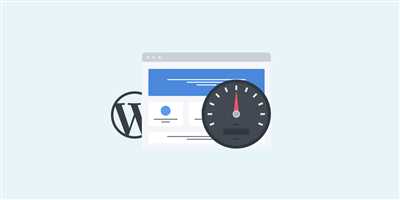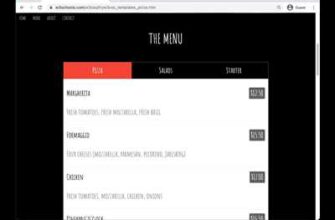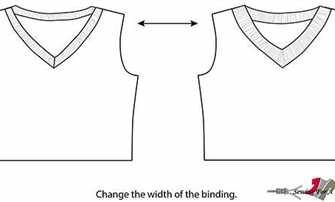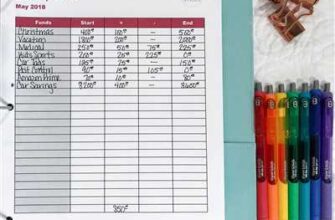
If you have a WordPress website, you know how important it is to have a fast and responsive site. Slow load times can kill your site’s performance and turn away potential visitors. But don’t worry, there are ways you can optimize your WordPress site to make it faster and more efficient.
First and foremost, you can start by optimizing your hosting. Choosing a reliable hosting provider that specializes in WordPress can make a world of difference. They will have servers specifically configured to work with WordPress, ensuring fast load times and optimal performance. Additionally, they may offer features like caching and CDN (content delivery network) integration that can further boost your site’s speed.
Another way to speed up your WordPress site is by optimizing your plugins. While plugins can be helpful and add functionality to your site, having too many unnecessary plugins can slow down your site’s load time. So, review your current plugins and remove any that you don’t use or need. Additionally, you can look for lightweight and optimized plugins that execute less code and have a minimal impact on your site’s performance.
Eight Ways to Optimize Your WordPress Site’s Performance
If your WordPress site is taking too long to load, it’s time to optimize its performance. Faster load times can improve user experience, increase conversions, and boost your site’s search engine rankings. Here are eight ways to make your WordPress site load faster:
- Optimize images: Large image files can slow down your site. Use image optimization plugins or compress your images before uploading them.
- Cache your site: Caching plugins work by storing static versions of your site’s content, reducing the load on your server and speeding up page load times.
- Choose a killer hosting provider: Your hosting provider plays a vital role in your site’s speed. Look for a hosting provider that offers excellent performance and server response times.
- Use a content delivery network (CDN): CDNs distribute your site’s static content across servers worldwide, ensuring that your content loads quickly for users, no matter where they are.
- Optimize your WordPress theme: Some themes may have unnecessary code or features that slow down your site. Opt for lightweight themes that prioritize speed.
- Avoid excessive use of plugins: While plugins can enhance your site’s functionality, too many plugins can negatively impact performance. Regularly review and delete unnecessary plugins.
- Optimize your database: Use plugins or manually clean up your WordPress database to remove unnecessary data, which can help speed up queries and improve overall site performance.
- Keep WordPress and plugins up to date: Regularly update your WordPress core and plugins to take advantage of performance improvements and security fixes.
By following these eight top tips, you can optimize your WordPress site’s performance and make your site load faster for anyone who visits it. Remember, speed is crucial, so take the time to optimize your site for the best possible user experience.
Anyone Can Make WordPress Faster
When it comes to website performance, load speed is a top priority. Whether you’re a blogger, freelancer, small business owner, or someone just starting their online journey, making your WordPress site faster is crucial.
Fortunately, you don’t need to be an expert to improve your site’s speed. Automattic, the company behind WordPress, provides a range of plugins and resources that can help anyone optimize their site’s performance.
Here are eight ways anyone can make WordPress faster:
1. Choose a good hosting provider: Your hosting provider plays a crucial role in your site’s speed. Look for a reputable hosting company that offers fast servers and excellent support.
2. Use a caching plugin: Caching plugins help optimize your site by generating static HTML files that are then served to your visitors. This reduces the time it takes for your site to load.
3. Optimize your code: Making your code more efficient can drastically improve your site’s speed. Minify your HTML, CSS, and JavaScript files to reduce their size and optimize your site’s performance.
4. Limit the use of plugins: While plugins can add functionality to your site, using too many of them can slow it down. Only install plugins that are essential for your site’s operation and regularly check for any unused or outdated ones to remove.
5. Use a lightweight theme: Some themes are designed to be resource-intensive and can slow down your site. Look for lightweight themes that are specifically optimized for speed.
6. Optimize images: Large image file sizes can significantly impact your site’s speed. Compress your images before uploading them to your site or use a plugin that automatically optimizes them for you.
7. Leverage browser caching: By setting cache headers, you can instruct your visitors’ browsers to store static files locally, reducing load times for returning visitors.
8. Enable lazy loading: Lazy loading delays the loading of images and videos until they are needed, improving the initial load time of your site.
By following these tips and implementing the recommended strategies, anyone can make their WordPress site faster. Don’t let a slow site kill your visitors’ patience. Take action now to optimize your site’s performance and offer a better user experience to your audience.
For more information and long-form guides on making WordPress faster, check out the following sources:
– WordPress.org’s Performance and Optimization Tips
– WPBeginner’s Guide to Speed up Your WordPress Site
– WP Rocket’s Ultimate Guide to WordPress Caching
Remember, improving your site’s speed is an ongoing process. Regularly monitor your site’s performance, keep up with the latest optimization techniques, and implement necessary adjustments. With dedication and the right tools, you can make your WordPress site lightning-fast!
Top 3 WordPress Performance KILLERS

When it comes to making your WordPress site faster, there are a few common performance killers that you need to watch out for. Follow these tips to optimize your site’s speed and improve its overall performance.
| Killer | Source | How to Fix |
|---|---|---|
| 1. Heavy Plugins | Downloads | Use lightweight plugins and disable any unnecessary ones. Plugins can slow down your site, so it’s important to choose them wisely and use only the ones that are essential for your site’s functionality. |
| 2. Lack of Caching | Automattic | Enable caching on your site. Caching allows your site’s pages to be stored as static HTML files, which reduces the load on your server and speeds up page load times for anyone visiting your site. |
| 3. Poor Hosting | Your hosting provider | Optimize your hosting environment or consider switching to a better hosting provider. Poor hosting can result in slow site performance and long load times, so it’s important to choose a reliable hosting service that can handle your site’s needs. |
By optimizing your plugins, enabling caching, and choosing the right hosting provider, you can significantly improve your WordPress site’s performance. Remember to regularly analyze your site’s speed and make necessary adjustments to ensure that your site is always running smoothly.
Use Caching Plugin
If you want to make your WordPress site faster, one of the most effective ways is to use a caching plugin. A caching plugin can optimize your site’s code and help it load faster by creating static versions of your pages.
When a visitor lands on your site, the caching plugin delivers a saved version of your page instead of executing all the PHP code and database queries required to display the page. This not only speeds up the load time but also reduces the load on your hosting server.
There are many caching plugins available for WordPress, but some of the top contenders include W3 Total Cache, WP Rocket, and WP Super Cache. Each of these plugins offers various settings and features to help you optimize your site’s performance.
Using a caching plugin is relatively simple. After you install and activate the plugin, you’ll typically find a new section in your WordPress dashboard where you can configure the plugin’s settings. These settings may include options like enabling page caching, minifying HTML, JavaScript, and CSS files, and setting up browser caching.
Some caching plugins even offer advanced features like CDN (Content Delivery Network) integration, lazy loading, and database optimization. These features further enhance your site’s performance and make it load faster for your visitors.
It’s important to note that while caching plugins can do wonders for your site’s speed, they may not be suitable for everyone or every type of website. Some sites, like e-commerce platforms or sites with frequent content updates, may benefit more from using other optimization techniques.
However, for the majority of WordPress sites, using a caching plugin is a must. It’s an easy and effective way to improve your site’s speed and user experience without the need for extensive coding or development work.
In conclusion, if you want to make your WordPress site faster, consider using a caching plugin. It can significantly reduce the load time of your pages and provide a better experience for your visitors. With many options available, anyone can optimize their site’s performance without making a call to their hosting provider. Give it a try and see the difference it makes!
Sources
- HTML and Code Optimization: By optimizing the HTML and code on your site, you can make it load faster. There are some plugins that can help you with this, such as Autoptimize and WP Super Minify.
- Caching: Utilizing caching can significantly improve the performance of your WordPress site. There are many caching plugins available, such as W3 Total Cache and WP Rocket, that can help you in this area.
- Server-Level Caching: If you have access to your site’s cPanel or server settings, you can enable server-level caching to further optimize your site’s load time.
- Use a CDN: Content Delivery Networks (CDNs) help to distribute your site’s static files across multiple servers, improving load times for users from different regions.
- Optimize Images: Compressing and optimizing your images can help reduce their file size and improve your site’s load time. You can use plugins like Smush or EWWW Image Optimizer to do this automatically.
- Minimize HTTP Requests: Each HTTP request made by your site takes time to process. Minimizing the number of requests can help speed up your site. Combine and minify CSS and JavaScript files, and reduce the number of external resources if possible.
- Choose a Fast Hosting Provider: Your hosting provider plays a big role in the speed and performance of your WordPress site. Look for a hosting provider that offers fast speeds and reliable performance.
These are just a few of the ways you can optimize your WordPress site to make it faster. By implementing these tips and using the right plugins, you can greatly improve the speed and performance of your site.










